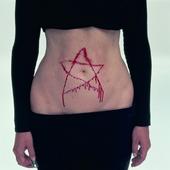Marina Abramovic (born 30 November 1946, in Belgrade, Yugoslavia) is a performance artist who began her career in the early 1970s. Active for over three decades, she has recently begun to describe herself as the “grandmother of performance art.â€
Abramovic's work explores the relationship between performer and audience, the limits of the body, and the possibilities of the mind.
Early life
Marina Abramovic's grandfather was a patriarch of the Serbian Orthodox church. After his death he was proclaimed a saint, embalmed, and placed in St. Sava's Church in Belgrade. Both of her parents were partisans during the Second World War : her father Vojo was a commander who was acclaimed as a national hero after the War; her mother Danica was a major in the army, and in the mid-sixties was Director of the Museum of the Revolution and Art in Belgrade.
Abramovic's father left the family in 1964. In an interview published in 1998, she described how her "mother took complete military-style control of me and my brother. I was not allowed to leave the house after 10 o'clock at night till I was 29 years old. ... All the performances in Yugoslavia I did before 10 o'clock in the evening because I had to be home then. It's completely insane, but all of my cutting myself, whipping myself, burning myself, almost losing my life in the firestar, everything was done before 10 in the evening." (Quoted in Thomas McEvilley, "Stages of Energy: Performance Art Ground Zero?" in Abramovic Artist Body, [Charta, 1998])
Abramovic was a student at the Academy of Fine Arts in Belgrade from 1965-70. She completed her post-graduate studies at the Academy of Fine Arts in Zagreb, Croatia in 1972. From 1973 to 1975 she taught at the Academy of Fine Arts at Novi Sad, while implementing her first solo performances.
In 1976 Abramovic left Yugoslavia and moved to Amsterdam.
